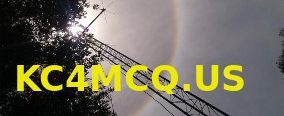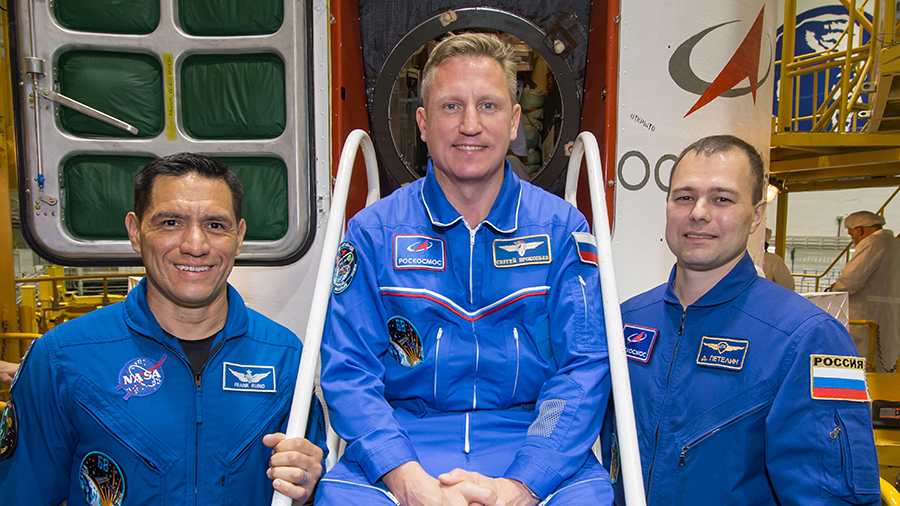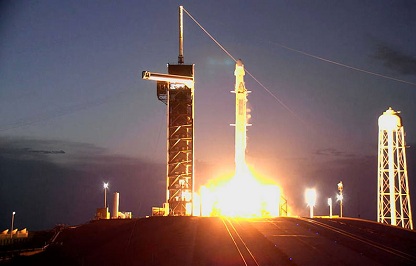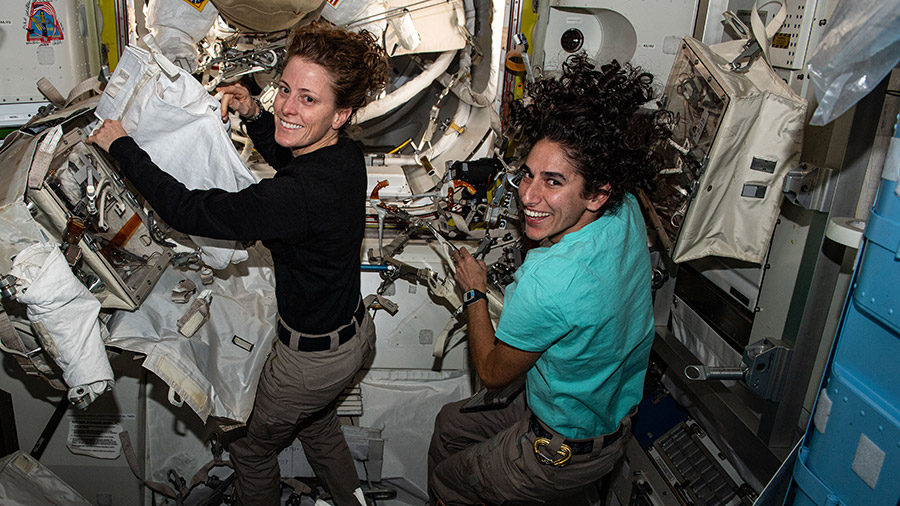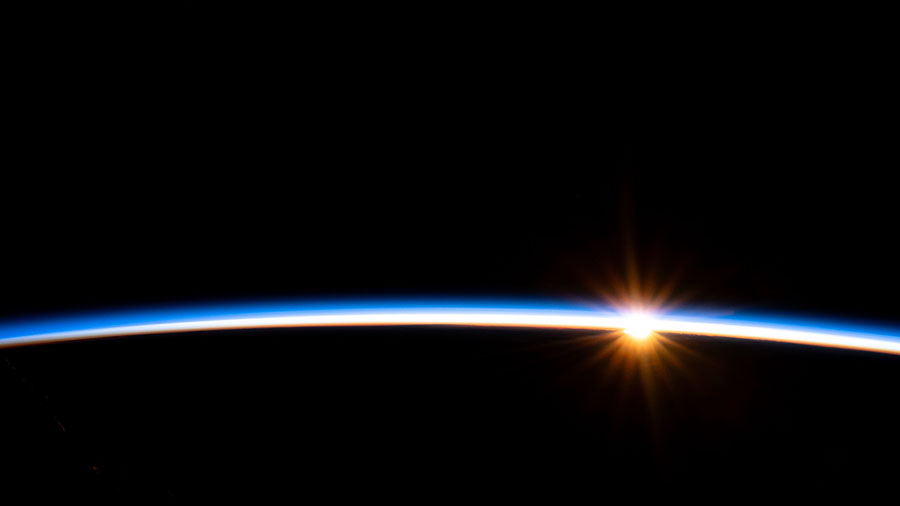
Ten people are now living aboard the International Space Station with the arrival of three new crewmates inside a Soyuz crew ship on Wednesday. The new crew members from NASA and Roscosmos will spend the next several days getting up to speed with living and working in space.
New flight engineers Frank Rubio from NASA and Dmitri Petelin from Roscosmos are beginning their first space mission with veteran cosmonaut Sergey Prokopyev, who is on his second space station mission. The trio blasted off at 9:54 a.m. EDT on Wednesday to the orbiting lab inside the Soyuz MS-22 spacecraft from Kazakhstan. The threesome docked to the Rassvet module less than three-and-a-half hours later. They waited a couple of more hours after leak and pressure checks before opening the spacecraft hatch and entering the station to begin lab familiarization activities ahead of a six-month mission.
Late next week, three cosmonauts who have been residing on the space station since March 18, will end their mission and return to Earth. Commander Oleg Artemyev and Flight Engineers Denis Matveev and Sergey Korsakov will board the Soyuz MS-21 crew ship, undock from the Prichal module, reenter Earth’s atmosphere, and parachute to a landing in Kazakhstan.
ESA (European Space Agency) astronaut Samantha Cristoforetti will take over as station commander from Artemyev before he departs during the traditional Change of Command ceremony next week. The leadership change will be seen live on NASA TV, the agency’s app, and its website at 9:35 a.m. on Sept. 28.
Meanwhile, as the two Soyuz crews begin handover procedures, the station’s four astronauts who have been orbiting Earth since April 27 stayed focused on advanced microgravity research.
Cristoforetti joined Expedition 67 Flight Engineer Kjell Lindgren from NASA who each wore a microphone attached to their shoulder to measure the space station’s acoustic environment and how it affects a crew member’s hearing. NASA Flight Engineer Jessica Watkins was back on foam research looking through the KERMIT microscope observing microstructures not possible in Earth’s gravity to gain insights into future research and commercial opportunities. NASA astronaut Bob Hines serviced components on the Cell Biology Experiment Facility, a research incubator, before documenting his daily meals for a space nutrition study.
Learn more about station activities by following the space station blog, @space_station and @ISS_Research on Twitter, as well as the ISS Facebook and ISS Instagram accounts.
Get weekly video highlights at: http://jscfeatures.jsc.nasa.gov/videoupdate/
Get the latest from NASA delivered every week. Subscribe here: www.nasa.gov/subscribe
